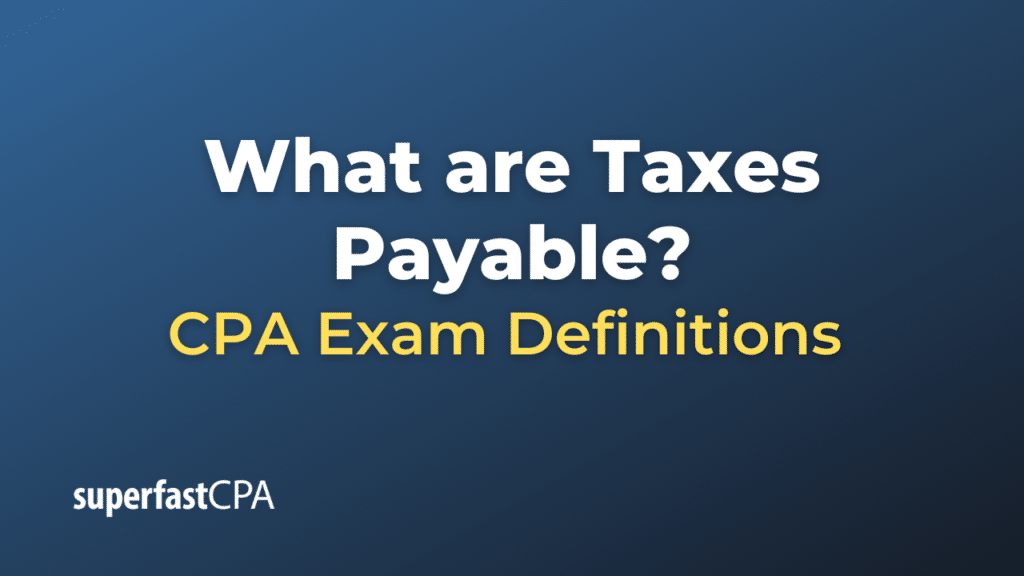Taxes Payable
“Taxes Payable” refers to the amount of taxes that an individual or entity owes to a tax authority, such as the federal government, state government, or local municipalities, which has not yet been paid. It represents a liability on the balance sheet, indicating that the entity is under an obligation to remit that amount to the relevant tax authority within a specified timeframe.
In a business context, taxes payable can encompass various types of taxes, including but not limited to:
- Income Taxes: Amounts due based on taxable income generated by the company.
- Sales Taxes: Amounts collected by the company from its customers on taxable sales and that need to be remitted to the state or local government.
- Payroll Taxes: Amounts withheld from employee paychecks for income tax, Social Security, and Medicare, plus the employer’s portion of Social Security and Medicare taxes.
- Property Taxes: Taxes on property the company owns, which are due to the local municipality.
- Excise Taxes: Taxes imposed on specific goods or activities, like gasoline or tobacco.
When an entity calculates its taxes due but hasn’t paid them off by the end of its reporting period, these amounts will be recorded as taxes payable in the liability section of its balance sheet.
Example of Taxes Payable
Let’s use a more detailed scenario to illustrate the concept of “Taxes Payable”:
Scenario:
Imagine a company called “GreenTech Innovations” that sells environmentally-friendly tech products. The year is coming to a close, and GreenTech Innovations is finalizing its financial statements for the year.
- Income Tax:
- After assessing its financials, GreenTech calculates that it owes $150,000 in income taxes based on its taxable profits for the year. However, it has not yet made this payment to the federal government.
- Sales Tax:
- GreenTech operates in a state that has a 5% sales tax on products. Throughout the year, the company has collected $50,000 in sales taxes from its customers, which it hasn’t remitted to the state tax department.
- Payroll Tax:
- GreenTech has withheld $30,000 in federal income taxes from its employees’ salaries over the year. Additionally, there are Social Security and Medicare taxes amounting to $20,000 that the company needs to remit. While GreenTech has deposited a portion of these amounts during the year, it still has $10,000 pending to be paid.
By the end of the year, GreenTech’s “Taxes Payable” would be the sum of these unpaid taxes:
- Income Tax Payable: $150,000
- Sales Tax Payable: $50,000
- Payroll Tax Payable: $10,000
- Total Taxes Payable: $210,000
In its balance sheet for the year-ending, GreenTech Innovations would list a liability of $210,000 under “Taxes Payable.” Once GreenTech remits these amounts to the respective tax authorities, the “Taxes Payable” liability would decrease accordingly.













